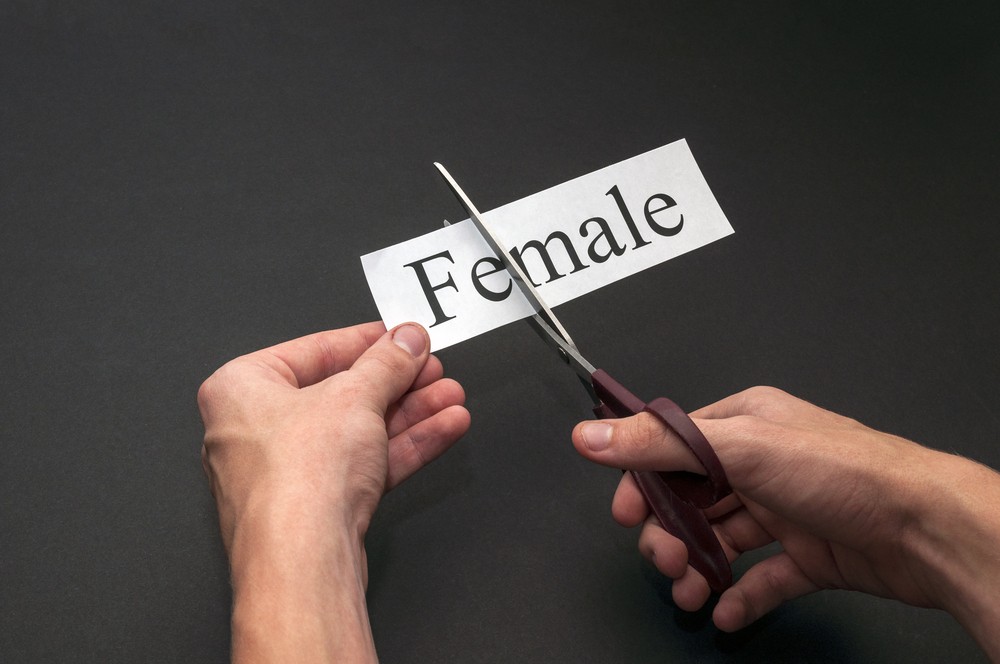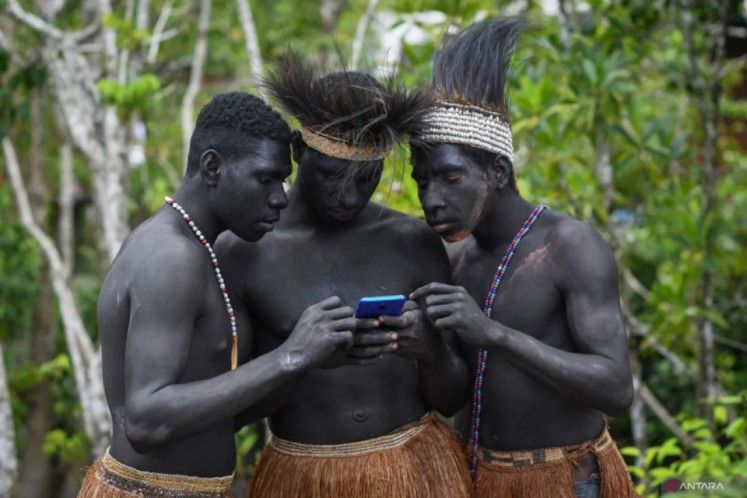Popular Reads
Top Results
Can't find what you're looking for?
View all search resultsPopular Reads
Top Results
Can't find what you're looking for?
View all search resultsPolitics of debilitation: Indonesian transgenders under siege
Change text size
Gift Premium Articles
to Anyone
O
n Saturday night, Jan. 27, 12 transgender women or waria were arrested by the North Aceh police and sharia police. They were reportedly dragged out from beauty parlors in the towns of Lhok Sukon and Panton Labu.
The police, according to media reports, had discussed this plan beforehand with the local Islamic leaders who had been increasingly concerned with the allegedly growing community of lesbian, gay, bisexual and transgender people (LGBT). Justifying this inhumane action, the police also recounted and alluded to the concerns from local women who said their teenagers were often seduced by those waria. The police said women came to them crying as their children had been enticed into the beauty parlors through free services by the waria working there.
Police said the arrest aimed to discipline and rehabilitate the waria, disciplining them to be “masculine” men. They were forcefully stripped topless and publicly humiliated. Their long hair was shaven.
There has been a recurring pattern of such insidious and derogatory treatment on waria in Aceh. Last December Islamic vigilantes also stalked a group of waria attending a birthday celebration near a hotel swimming pool. What reportedly provoked that incarceration was rumors of a waria beauty pageant contest and a birthday party held simultaneously in the hotel. The seven waria were detained for 24 hours for violating the sharia bylaw and local customs.
As Aceh has been granted special autonomy to enforce Islamic law that explicitly outlaws same-sex relations and practices, there were also efforts to criminalize them. Despite their feminine mannerisms, waria are still perceived as biological males by authorities, and hence could be outlawed under charges of homosexual misconduct. However, police in the latter case eventually were unable to prove such wrongdoings.
Regardless of sufficient evidence, the unprecedented frequency of attacks on LGBT Indonesians since 2016 have also resulted in increased politicization of the issue by religious conservatives. This was also eerily followed with an array of efforts to criminalize them. As transgenders are more visible than homosexuals, and gender non-normativity (e.g. men with feminine mannerism) has increasingly become the primary marker of the “LGBT issue”, waria are increasingly more vulnerable. They are not only prone to physical violence, but also increasingly becoming the target of continuous debilitation.
Drawing on and mainly inspired by the queer theorist Jasbir K. Puar in her 2017 book The Right to Maim, the term “debility” here refers to how particular bodies are debilitated by preventing them from access to resources and recognition. Only certain bodies are given and allowed opportunities and capacities if they follow certain norms, while the others are rejected.
Central to these practices is also disciplinary and control. In many cases regarding waria, these demeaning practices often take place through police incarceration, detention, space control, and impairment of their livelihood support.
In March 2016, the Bireun regency in Aceh issued a decree for beauty parlors, urging them to stop employing waria. This policy was deliberately tailored to curb the allegedly growing LGBT community. As waria have experienced limited access to jobs because of their non-conforming gender, this move only further impaired their access to livelihood. To retain their employment, they had to deny their identity and behave as men. The state only perceives two legitimate gender identities, either man or woman.
The police incarceration does more than just arresting waria. Equally frightening, public spaces are scrutinized, monitored, and patrolled.
In Yogyakarta its bylaw on vagrancy allows local public order officers to arrest waria, alongside the homeless, street children, and female sex workers for “public nuisance’”. Following such arrests, the waria were sent to assessment camps and reportedly experienced violence.
Debilitation occurs through limiting movements and curbing spaces. This then should invite our critical evaluation on what “public space” really means. Too often, public is understood loosely as “all people”. Yet the above case clearly suggests different people are given different access to space including those with non-conforming gender and low social class.
Space does not only come in the form of physical territory. Online and broadcasting media are inevitably interwoven with our daily lives, offering different forms of space, social environment and interaction. Nevertheless, such space also becomes targets for surveillance and control. After the ban of gay applications in 2016 by the Communications and Information Ministry, the Indonesian Broadcasting Commission enacted an almost similar plan to purge LGBT-related contents from television, mainly as shown by male characters dressing and behaving like women. If in the past at least those expressions and identities were not criminalized, now they have become new targets to prevent the “growth of LGBT” in the country.
What targeted through those dehumanizing practices are not only just bodies or genders. But rather, life, and future itself. As bodies, gender identities and sexual orientations become sites of control, they are hence treated as precursory measures to allow or ban particular subjects from thriving and flourishing. These are the politics of debilitation — the determination of who is allowed to flourish, who is deliberately left behind, and through which modalities such politics are enacted.
***
The writer, who obtained his Master’s in public policy from the National University of Singapore, is the writer of Coming Out and a lecturer of gender and sexuality studies. He is currently pursuing his Masters by Research in Gender and Cultural Studies in The University of Sydney. See other writings by Hendri Yulius here.
---------------
We are looking for information, opinions, and in-depth analysis from experts or scholars in a variety of fields. We choose articles based on facts or opinions about general news, as well as quality analysis and commentary about Indonesia or international events. Send your piece to community@jakpost.com.










